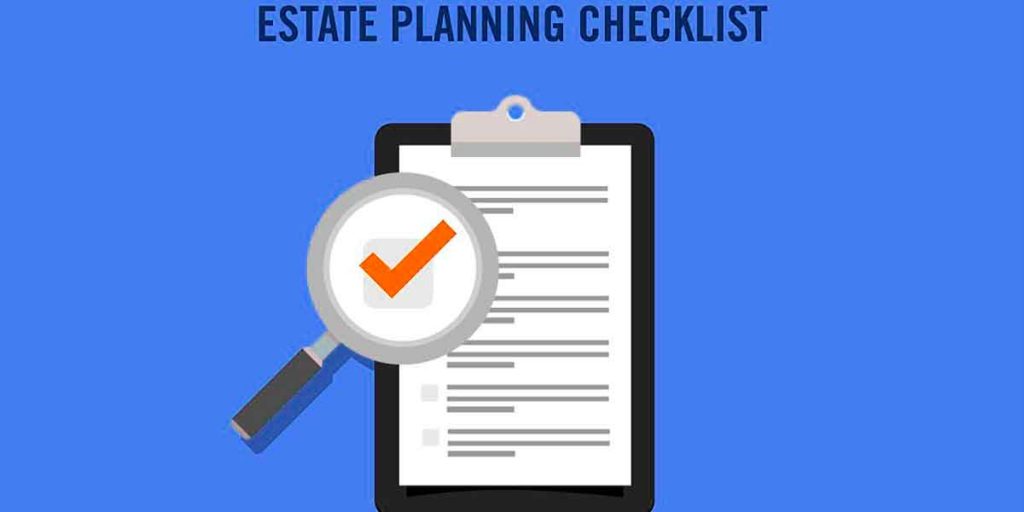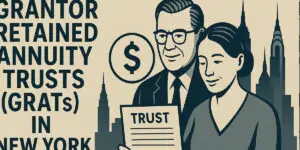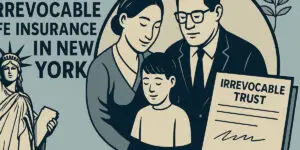Your Estate Plan Checklist
- The first thing to do is list all your assets including your estate while thinking, who’s keeping this inheritance on the back of your mind. Then of course guardianship of your children. Remember to assign an executor of your Will. An executor is someone who will do anything you list on the document.
- Now you would need to purchase a trust. A trust is a document that gives everything you own a good sense of high security. This being, you can assign yourself or any beneficiary you want to hold your assets by law and even avoid the probate process.
- List beneficiaries to transfer your funds too like organizations or debts that need to be paid.
- The fourth task is to make sure you get a power of attorney with a health care proxy included. This will let your lawyer give you the medical care you need that you put on your file.
- Finally make sure your Will isn’t a draft anymore but a finalized will. Leave a copy to your executor or anyone you choose to represent yourself when it comes to taking caring of your belongings and your family.
FAQ
1. Should I Update My Estate Plan?
Your plan ought to be investigated at regular intervals however this may require changes in case you’re engaged with marriage, bear any children or sought legal separation. This is because of laws inside the state and presently who’s included.
2. Would it be a good idea for you to keep away from probate?
There’s an arrangement when needing to keep away from a probate and it’s because of hanging a tight year for courts endorsement or in any event, having the courts endorsement as opposed to your own. Both these things can heap more charges on top of the record the more conflicts arise. It is important to utilize the probate since, supposing that you’re glancing through the document as opposed to a lawyer, you will be inclined to errors and more charges that the lawyer could of spotted. Impending missteps can likewise make the recording be longer than it ought to. So you shouldn’t stay away from any probates unless you’re making a Trust.
3. What is a Testamentary trust?
A testamentary trust is a a trust that is formed after a persons passing and is instructed or assigned according to the last Will. It is also considered a third-party if it is someone assigned as a trustee rather a family member. Then that person would have the right to move the assets around.
4. For what reason do I really need a lawyer to compose a Will?
A lawyer is important to forestall future slip-ups that the lawyer oneself is more mindful of. Needs in your Will might be to ambiguous to support in court and that is just one of numerous instances of when that can happen. The issue here is that any errors found in the Will needs to go through a postponed probate process. Note, a probate can take as long as a year and extra charges added upon these postponements. So it’s pivotal that you get a lawyer to forestall further struggle.
5. Would I be able to create a plan all alone?
You are allowed to make your own arrangement however doing so would have you leave any significant errors and is a decent possibility that will happen on account of specific law terms you wanted to raise with an actual lawyer. So making your own arrangement might be an invalid one.
6. Should my spouse and I file a joint tax return?
When filing a joint tax return you have an easier time with filing taxes and you have a deduction of fees included. With separate accounts you and your spouse would have to do your own paperwork. With a joint tax return things would be much easier and you can save money.
7. How long does probate take in New York?
If you have an uncomplicated Will with every statement clear and destination of all assets addressed then the process can take between 3 to 6 months. Though some cases can be complicated when it comes to disagreements in the Will or any updates that needs to be changed. This process can take up to years depending on how long the modification and needs take.
8. What happens when someone dies without a will in New York?
Without a Will, your family would have to discuss with who gets what assets and with other beneficiaries involved can make this case more expensive. A will is very important to make things organized and give less strain to everyone within the family.
9. Can I work part time and collect unemployment in New York?
Yes you can! You would have to work 30 hours or fewer and make at least less than $504.









